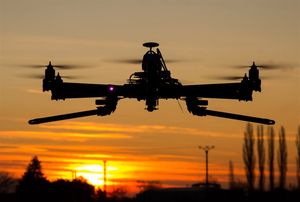Operations data from hundreds of customers reveals that platform teams lose 34 workdays per year resolving issues, and consistent over-provisioning escalates unnecessary cloud costs
Komodor today announced the findings from its new Komodor 2025 Enterprise Kubernetes Report which reveal that most enterprises still struggle to keep production environments stable and costs under control. According to the report, nearly 8 in 10 incidents stem from recent system changes, outages still take close to an hour to detect and resolve, and more than 65% of workloads run under half their requested CPU or memory, fueling chronic overspend.
The data paints a consistent picture: complexity is rising faster than operational discipline. Most incidents trace back to changes pushed into multi-cluster, multi-environment estates. Teams split their time almost evenly between hunting the problem and fixing it, and the excess capacity provisioned to “play it safe” quietly taxes business every hour of every day. The report’s key finding is that Kubernetes is mature, but enterprise operations still aren’t.
“Organizations have made Kubernetes their standard, but our report shows the real challenge is operational, not architectural,” said Itiel Shwartz, CTO and Co-founder of Komodor. “Even as practices like GitOps and platform engineering gain traction, enterprises still grapple with change management, cost control, and skills gaps. At the same time, the growth of AI/ML workloads and AIOps marks the next frontier, reinforcing Kubernetes as the backbone of enterprise infrastructure.”
Key Highlights from the Report
The Komodor 2025 Enterprise Kubernetes Report exposes clear patterns on how enterprises are running Kubernetes at scale. While adoption is nearly universal, the findings demonstrate that recurring issues that slow recovery, inflate cloud bills, and expose customers to outages are driving risk and cost. Highlights from the report include:
-
Change is the leading driver of instability: 79% of production issues originate from a recent system change.
-
Slow detection and recovery persist: Median MTTD is nearly 40 minutes for high-impact outages, while median MTTR is more than 50 minutes. On average, teams lose more than 64 full workdays every year detecting and resolving issues.
-
Business impact is costly and frequent: 38% of companies report high-impact outages weekly, while 62% estimate costs at $1M/hour for major downtime.
-
Ops teams are still busy firefighting: Over 60% of their time is spent on troubleshooting issues, while only 20% of incidents are resolved without escalation.
-
Overspend is widespread: More than 82% of Kubernetes workloads are overprovisioned (65% use less than half of the CPU and memory they request) reflecting unnecessary over-provisioning and rightsizing gaps. Meanwhile, 11% are underprovisioned, and only 7% hit accurate requests and limits.
-
Scale and complexity compound risk: A typical enterprise now runs more than 20 clusters, with nearly half operating across more than four environments.
-
AI adoption is rising in ops: Enterprises are rapidly adopting AI in operations, from AI and ML model monitoring to AIOps, and see the greatest impact when these tools are embedded into unified observability and incident response.
- Skills remain a primary constraint: Kubernetes expertise gaps slow troubleshooting, cost management, and policy enforcement.
How to Use These Findings
The data shows where Kubernetes operations break down: change complexity, slow incident response, and costly over-provisioning. The following best practices offer a roadmap to unify reliability, prevention, and efficiency.
- Harden the change pipeline. Enforce policy-as-code and admission controllers to block unsafe configs at deploy time. Pair GitOps with automated drift detection and rollback to keep multi-cluster environments consistent.
- Embed AI into observability. Unify metrics, logs, traces, and events in a single pipeline. Use AI-powered anomaly detection, root cause analysis, and auto-remediation to cut MTTD and MTTR.
- Codify and automate incident workflows. Version-control runbooks, standardize escalation policies, and rehearse cross-cluster failover. Let automated remediation handle common issues.
- Continuously rightsize. Apply CPU/memory limits through admission policies, extend autoscaling coverage, and integrate predictive scaling to prevent both overspend and resource starvation.
- Tie reliability to business outcomes. Correlate SLOs with revenue and customer metrics so improvements in uptime and recovery compete fairly with feature delivery.
- Build golden paths. Provide developers with pre-vetted templates, operator bundles, and guardrails so they can deploy safely without deep Kubernetes expertise.
Methodology
The Komodor 2025 Enterprise Kubernetes Report is based on aggregated, anonymized data from hundreds of production environments, covering thousands of Kubernetes incidents. It combines large-scale telemetry with AI-driven user insights to benchmark reliability, troubleshooting effort, cost efficiency, and emerging practices in AI-assisted operations. A full copy of the report is available at: https://komodor.com/resources/komodor-2025-enterprise-kubernetes-report/.
About Komodor
Komodor is the leading AI SRE (Site Reliability Engineering) Platform for Kubernetes. Enterprises use Komodor to maximize uptime, reduce cloud costs, and simplify operations with AI-driven triage, automated remediation, and autonomous failure prevention. Trusted by Fortune 500 companies across financial services, healthcare, retail, and more, Komodor eliminates Kubernetes complexity while improving application performance and resilience. The company has raised $90M in venture funding from leading investors in the US and EMEA. For more information, visit komodor.com, and follow us on LinkedIn and X.
View source version on businesswire.com: https://www.businesswire.com/news/home/20250917424603/en/
According to the report, nearly 8 in 10 incidents stem from recent system changes, outages still take close to an hour to detect and resolve, and more than 65% of workloads run under half their requested CPU or memory, fueling chronic overspend.
Contacts
Media Contact:
Marc Gendron
Marc Gendron PR for Komodor
marc@mgpr.net
617-877-7480






